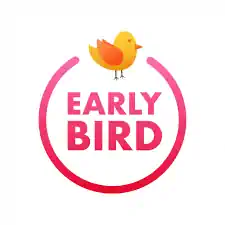The basic education curriculum framework vision and mission are supported by three important pillars:-
- Values based education
- Guiding principles
- Theoretical approaches
Values Based Education
• Values are defined as standards that guide an individual on how to respond or behave in a given circumstance.
• Our values influence how we feel, act and make choices in life.
• The teaching of values will facilitate the achievement of the curriculum reforms’ vision, particularly with respect to developing ethical citizens.
• The thrust of this will be to nurture learners who do the right thing because it is the right thing to do. Students will be guided to learn
Theoretical Approaches
• A theory is an abstract general explanation of observations or a subject under study that can be relied upon to provide guidance for practice.
• It attempts to predict behaviour or reach a reasonable and general set of explanations for an underlying issue.
• The Basic Education Curriculum Framework is underpinned by several theories:
i. Vygotsky’s social-cultural development theory, the primary focus of which is on supporting students through scaffolding the learning experiences.
ii. Piaget’s cognitive development theory, which will mainly provide the alignment between the maturational development of the child and how learning should be organized.
iii. Bruner’s cognitive development theory, which emphasises the importance of organizing learning in a meaningful way to build from the known to the unknown.
iv. John Hattie’s Visible Learning that emphasises the role of the teacher in terms of the impact the approaches adopted may have on students’ learning.
v. Dewey’s social constructivism that focuses on the need to adopt learner centred approaches in curriculum design and delivery
Guiding Principles
The Framework is based on the following guiding principles:
i. Opportunity
ii. Excellence
iii. Diversity and Inclusion
iv. Differentiated Curriculum and Learning
v. Parental Empowerment and Engagement
vi. Community Service Learning
VISION AND MISSION OF BASIC EDUCATION CURRICULUM REFORM
VISION
● The vision of the basic education curriculum reforms is to enable every Kenyan to be engaged, empowered and ethical citizen.
● This will be achieved by providing every Kenyan learner with world class standards in the skills and knowledge that they deserve, and which they need in order to thrive in the 21st century.
● This shall be accomplished through the provision of excellent teaching, school environments and resources and a sustainable visionary curriculum
● In order to do this, there is need to develop teachers who are:
1. Highly knowledgeable
2. Reflective
3. Professional
Possessing additional enhanced skills
Confident in a range of modern pedagogical like coaching, facilitating, and mentoring
MISSION
The mission of the basic education curriculum reforms is ‘nurturing every learner’s potential’.
- The curriculum will be designed to ensure that it provides opportunities to identify the potential that every learner brings to school and nurture this potential through the learning pathways and tracks that will be provided at Senior School.
- The mission will ensure that no child is labeled a failure at the end of basic education.
